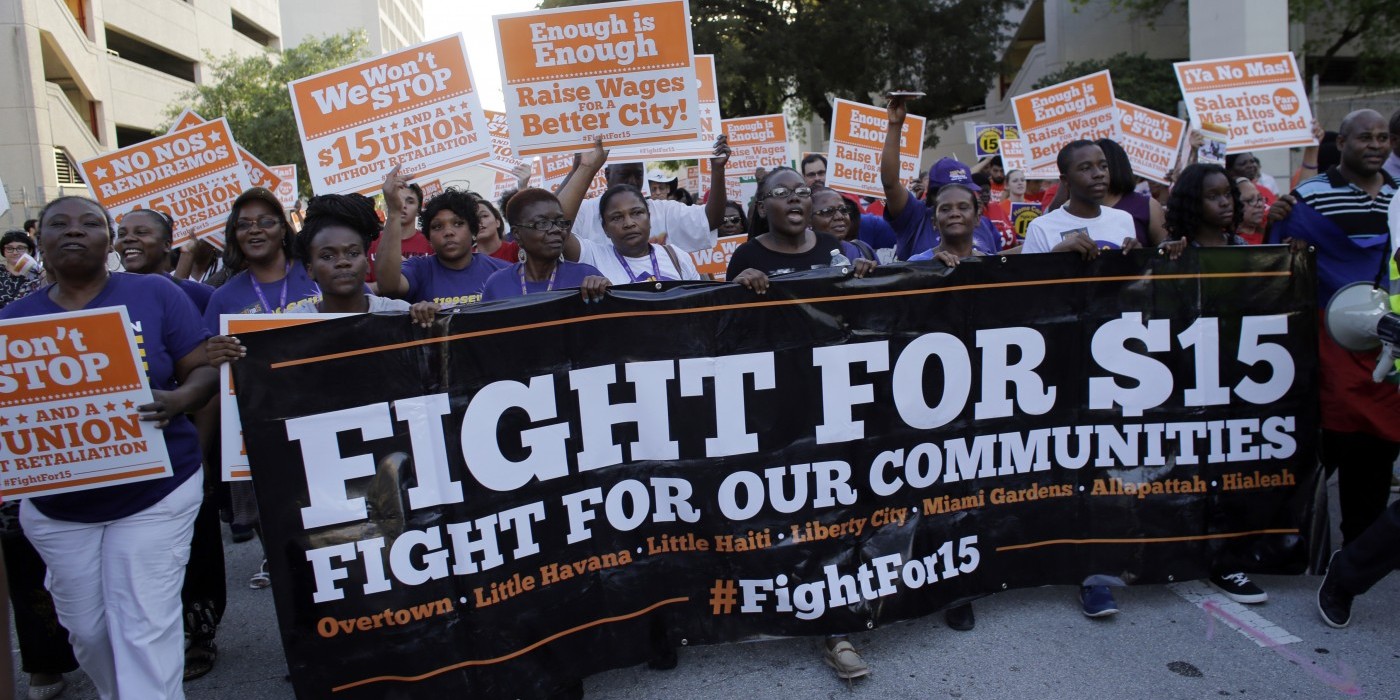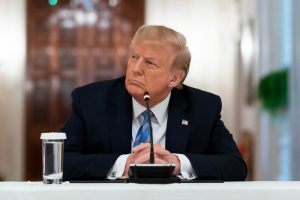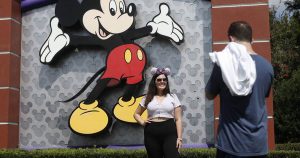‘We have to link these fights in a new and deeper way than ever before…’
Protesters march in support of raising the minimum wage to $15 an hour as part of an expanding national movement known as Fight for 15. / PHOTO: Associated Press
(Associated Press) A national coalition of labor unions, along with racial and social justice organizations, will stage a mass walkout from work this month, as part of an ongoing reckoning on systemic racism and police brutality in the U.S.
Dubbed the “Strike for Black Lives,” tens of thousands of fast food, ride-share, nursing home and airport workers in more than 25 cities are expected to walk off the job July 20 for a full day strike.
Those who can’t strike for a full day will walk out for about eight minutes—the amount of time prosecutors say a white Minneapolis police officer held his knee on George Floyd’s neck—in remembrance of Black men and women who died recently at the hands of police.
The national strike will also include worker-led marches through participating cities, organizers said Wednesday.
Organizers are demanding that corporations and government confront systemic racism in an economy that chokes off economic mobility and career opportunities for many black and Hispanic workers earning less than a living wage.
They also stress the need for guaranteed sick pay, affordable health care coverage and better safety measures for low-wage workers who never had the option of working from home during the coronavirus pandemic.
“We have to link these fights in a new and deeper way than ever before,” said Mary Kay Henry, president of the Service Employees International Union, which represents over 2 million workers in the U.S. and Canada.
“Our members have been on a journey … to understanding why we cannot win economic justice without racial justice. This strike for black lives is a way to take our members’ understanding about that into the streets,” Henry told the AP.
Among the strikers’ specific demands are that corporations and government declare unequivocally that “black lives matter.” Elected officials at every level must use executive and legislative power to pass laws that guarantee people of all races can thrive, according to a list of demands.
Employers must also raise wages and allow workers to unionize to negotiate better health care, sick leave and child care support.
The service workers union has partnered with the International Brotherhood of Teamsters, the American Federation of Teachers, United Farm Workers and the Fight for $15 and a Union, which was launched in 2012 by American fast food workers to push for a higher minimum wage.
Social and racial justice groups taking part include March On, the Center for Popular Democracy, the National Domestic Workers Alliance and the Movement for Black Lives, a coalition of over 150 organizations that make up the Black Lives Matter movement.
Ash-Lee Woodard Henderson, a strike organizer with the Movement for Black Lives, said corporate giants that have come out in support of the BLM movement amid nationwide protests over police brutality have also profited from racial injustice and inequity.
“They claim to support black lives, but their business model functions by exploiting black labor—passing off pennies as ‘living wages’ and pretending to be shocked when COVID-19 sickens those Black people who make up their essential workers,” said Henderson, co-executive director of Tennessee-based Highlander Research and Education Center.
“Corporate power is a threat to racial justice, and the only way to usher in a new economy is by tackling those forces that aren’t fully committed to dismantling racism,” she said in a statement.
“Strike for Black Lives” organizers say they want to disrupt a multi-generational cycle of poverty perpetuated by anti-union and other policies that make it difficult to bargain collectively for better wages and working conditions.
“The reason why, on July 20th, you’re going to see strikes and protests and the walk-offs and socially distanced sit-ins and voter registration outreach is because thousands and thousands of poor, low-wage workers of every race, creed and color understand that racial, economic, health care, immigration, climate and other justice fights are all connected,” the Rev. William Barber II, co-chair of the Poor People’s Campaign, said in a telephone interview.
“If in fact we are going to take on police violence that kills, then certainly we have to take on economic violence that also kills,” he said.


















